
Some thoughts about teaching, learning and literature from someone who is still pretty new at this...
Tuesday, September 27, 2005
Friday, September 16, 2005
Year 11 Lit Texts
I'm teaching year 11 Literature for the first time next year and I get to choose my own text list (how exciting!). This is what I've (semi)settled on at the moment:
Bush Studies, by Barbara Baynton (lots of interesting possibilities)

A Streetcar Named Desire, by Tennessee Williams (the play and the film- I love it and the kids will love it)
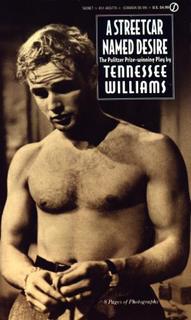
The Importance of Being Earnest, by Oscar Wilde (my colleague taught it this year and the students laughed uproariously all the way through- but that could be because she's really great at the accents)

Songs of Innocence and Experience, by William Blake (interesting comparison possibilities)
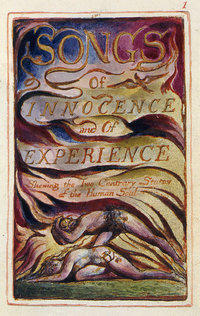
The Scarlet Letter, by Nathaniel Hawthorne (love it- rich in symbolism, fascinating context, all that good stuff)

I'm still playing with a few other things, too, like The Crucible, Lambs of God, The Well, Jane Eyre...
I'm a bit worried that I don't seem to have anything really contemporary, though.
Any suggestions/comments?
Bush Studies, by Barbara Baynton (lots of interesting possibilities)

A Streetcar Named Desire, by Tennessee Williams (the play and the film- I love it and the kids will love it)

The Importance of Being Earnest, by Oscar Wilde (my colleague taught it this year and the students laughed uproariously all the way through- but that could be because she's really great at the accents)

Songs of Innocence and Experience, by William Blake (interesting comparison possibilities)

The Scarlet Letter, by Nathaniel Hawthorne (love it- rich in symbolism, fascinating context, all that good stuff)

I'm still playing with a few other things, too, like The Crucible, Lambs of God, The Well, Jane Eyre...
I'm a bit worried that I don't seem to have anything really contemporary, though.
Any suggestions/comments?
Thursday, September 15, 2005
Read this. Please.
This is an experiment. I am not necessarily writing what I mean, because I don't know what I mean. I HAVE NO IDEA WHAT I'M DOING. I just want to write and see what happens.
I once wrote a poem using one of those 'magnetic poety' sets. I only had about thirty words to choose from. It was about the sea. NOte: there was more text here, but I deleted it.
In the beginning, there was a girl who loved music and drama. She loved low, resonate notes that hung like fog above the ground, not the twinkling high notes that vanished as if they had never been. This was odd because she was a flautist. She wanted to play notes that didn't exist. No one understood that.
She should have played cello.
She performed a monologue that made people cry. 'This is all I want to do,' she thought to herself. 'I want to make emotion leak out of people.'
In the end, the music warbled away. The voice was replaced with black squiggles on a white sea. Or, perhaps the squiggles were really holes, burnt into the page. Spaces one can slip through.
and what is the other option? the imposter cried. and what are the choices? the misfit sighed.
i don't know she whispered. all i can do is keep tripping across the surface and hope i don't fall
through
the
crevices.
and if you do???
there is always another page lying beneath waiting to be read she said and hoped that it was true.
it is true, the misfit said. i have tried to find the end. i have searched for it in
ATWOODOCONNORRICHBARNESCOETZEETENNYSONSTRAUSSMALORY
CARMODYPLATOH.D.DICKENSSETHWILDEMACGUIRETOLSTOYFOWLES
and many other places but i have never reached the end.
it is therefore a reasonable hypothesis to assume that there isn't one, the imposter assented. a never ending DNA strand
it's true, she exclaimed. i can type and type and type and type meaningless squiggles and the pages never end. a fresh one is always waiting even if all i write is
that is because the page doesn't judge you, the misfit smiled, relieved. isn't that nice? the page is open to anything. anything!
mmm, it's the reader you have to worry about, the imposter grumbled. the reader judges every word. and even when they don't know what you mean they assume that they do. they interrogate you, hunt for misplaced squiggles, criticise your shape, doodle on margins and well, all sorts of awful things really.
but worst of all, the misfit whispered, worse even than the interrogating and the hunting and the criticising and the doodling is
is-s wh-what, she stammered.
worst of all is when they walk past without ever glancing at the page. that is the worst thing.
oh. yes.
See? I told you so. Even when I don't mean them to the black squiggles still take on shapes, definitions. Even if I fight against it. But perhaps I don't fight hard enough. I want to be understood. Even when I'm trying to be elusive I still leave enough clues strewn across the space for people to put a picture together. Even if it clashes with the picture in my head. There are still common brushstrokes, similar tints. Tricky, isn't it?
yes, said the misfit
I once wrote a poem using one of those 'magnetic poety' sets. I only had about thirty words to choose from. It was about the sea. NOte: there was more text here, but I deleted it.
In the beginning, there was a girl who loved music and drama. She loved low, resonate notes that hung like fog above the ground, not the twinkling high notes that vanished as if they had never been. This was odd because she was a flautist. She wanted to play notes that didn't exist. No one understood that.
She should have played cello.
She performed a monologue that made people cry. 'This is all I want to do,' she thought to herself. 'I want to make emotion leak out of people.'
In the end, the music warbled away. The voice was replaced with black squiggles on a white sea. Or, perhaps the squiggles were really holes, burnt into the page. Spaces one can slip through.
and what is the other option? the imposter cried. and what are the choices? the misfit sighed.
i don't know she whispered. all i can do is keep tripping across the surface and hope i don't fall
through
the
crevices.
and if you do???
there is always another page lying beneath waiting to be read she said and hoped that it was true.
it is true, the misfit said. i have tried to find the end. i have searched for it in
ATWOODOCONNORRICHBARNESCOETZEETENNYSONSTRAUSSMALORY
CARMODYPLATOH.D.DICKENSSETHWILDEMACGUIRETOLSTOYFOWLES
and many other places but i have never reached the end.
it is therefore a reasonable hypothesis to assume that there isn't one, the imposter assented. a never ending DNA strand
it's true, she exclaimed. i can type and type and type and type meaningless squiggles and the pages never end. a fresh one is always waiting even if all i write is
that is because the page doesn't judge you, the misfit smiled, relieved. isn't that nice? the page is open to anything. anything!
mmm, it's the reader you have to worry about, the imposter grumbled. the reader judges every word. and even when they don't know what you mean they assume that they do. they interrogate you, hunt for misplaced squiggles, criticise your shape, doodle on margins and well, all sorts of awful things really.
but worst of all, the misfit whispered, worse even than the interrogating and the hunting and the criticising and the doodling is
is-s wh-what, she stammered.
worst of all is when they walk past without ever glancing at the page. that is the worst thing.
oh. yes.
See? I told you so. Even when I don't mean them to the black squiggles still take on shapes, definitions. Even if I fight against it. But perhaps I don't fight hard enough. I want to be understood. Even when I'm trying to be elusive I still leave enough clues strewn across the space for people to put a picture together. Even if it clashes with the picture in my head. There are still common brushstrokes, similar tints. Tricky, isn't it?
yes, said the misfit
Saturday, September 03, 2005
What is English?
What is English? How do we define it within a shifting and fragmented world?

How do we address the inherent challenges in attempting to avoid definition?
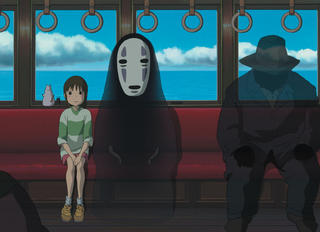
How do we challenge the reductive definitions and control foisted upon us by policy makers and government bodies?

How do we prepare our students to engage critically with a world that won’t stand still?

In a textual world where classics, visuals, voices, games, comics, poems, hypertexts, blogs, ezines, newspapers and cultural trends continue to overlap and merge, leaning on each other for room, how can subject English ever be defined?
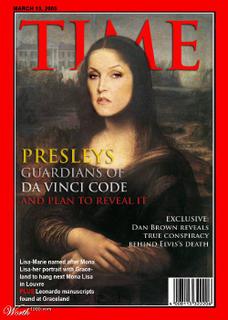

How do we address the inherent challenges in attempting to avoid definition?

How do we challenge the reductive definitions and control foisted upon us by policy makers and government bodies?

How do we prepare our students to engage critically with a world that won’t stand still?

In a textual world where classics, visuals, voices, games, comics, poems, hypertexts, blogs, ezines, newspapers and cultural trends continue to overlap and merge, leaning on each other for room, how can subject English ever be defined?

Crafty Coetzee
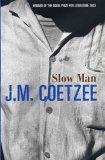
While reading the Review section of The Age this morning and crunching on toast with peanut butter and honey, I discovered that J.M. Coetzee's latest novel, Slow Man, is now on sale. Naturally, that meant I had to dash down to Borders to get it, even though I'm not sure exactly when I'll get to read it.
Coetzee and I have had a bizarre, one-sided love-hate relationship over the last few years. He infuriates me- I hate what he does to his female characters in particular- and yet I am continually drawn to his crisp, precise prose that I could never hope to emulate and don't particularly want to.
The first book of his that I read was Youth. It provoked such a strong reaction from me, to the point where I would feel the need to wash my hands after I had put it down. There were times when I wanted to stab forks through its pages, and other times when I felt like pinning it to the clothesline and watch it slowly succumb to the weather from the relative safety of my bedroom window. And yet, there is a moment in that text that has stayed with me over the years and pops into my mind at odd times when I least expect it. It is the horrific, yet oddly tender reflection from a father on his aborted child:
His thoughts keep going to what was destroyed inside her- that pod of flesh, that rubbery manikin. He sees the little creature flushed down the toilet at the Woodstock house, tumbled through the maze of sewers, tossed out at last into the shallows, blinking in the sudden sun, struggling against the waves that will carry it out into the bay. He did not want it to live and now he does not want it to die. Yet even if he were to run down to the beach, find it, save it from the sea, what would he do with it? Bring it home, keep it warm in cotton wool, try to get it to grow? How can he who is still a child bring up a child?
He is out of his depth. He has barely emerged into the world himself and already he has a death chalked up against him. How many of the other men he sees in the streets carry dead children with them like baby shoes slung around their necks?
Phew. See what I mean?
Slow Man is another experiment in metafiction for Coetzee (a genre that I find fascinating). Apparently, the central character from his last novel, the elderly writer Elizabeth Costello from the novel of the same name (a woman who I wanted to rescue from the very pages that she had been created within- damn Coetzee and his arrogant, assuming treatment of female characters) appears in this new novel, quite unexpectedly, which allows Coetzee to examine the nature of the creative process. ("Postmodern shenanigans" is what one reviewer termed this device). Slow Man is also supposed to continue in the more overtly philosophical vein of his recent books, which I quite enjoy but some reviewers seem to abhor.
There have been a few quite interesting and contradictory reviews published:
Kerryn Goldsworthy for The Age
Sarah Emily Miano for The Times
D J Taylor for The Independent
Robert Macfarlane for the Sunday Times
Looks like it will be an interesting journey...
Subscribe to:
Posts (Atom)